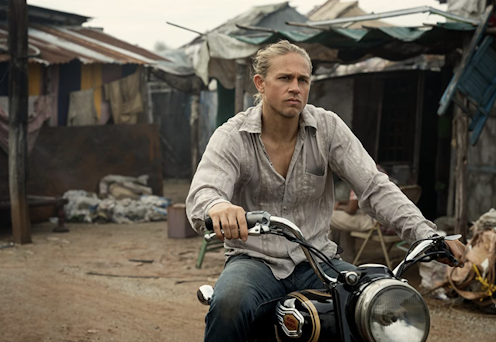Shantaram – the Black white man's burden
- Written by Sunil Badami, Academic Lead, Digital Transformation for Creative Industries, University of Technology Sydney

There are only two things you’re likely to encounter in India as much as Delhi belly: ubiquitous copies of Gregory David Roberts’ best-selling 2003 novel Shantaram[1] in hostel lobbies and Swiss bakeries and, as noted in the book, constantly “being stared at with the […] almost accusatory censure of those who’ve convinced themselves they’ve found the one true path”.
Based on Roberts’ own life[2], Shantaram tells the story of Lin, an armed robber on the run with a false passport. Lin ends up in a Bombay slum and is adopted “like a son” by a mystic Afghan mafia boss before becoming a gun runner to Africa and a mujahedeen (guerrilla fighter) in Afghanistan.
Having sold over six million copies since publication, there have been numerous attempts[3] to adapt the book for film. It’s now a TV series[4] made for streaming service Apple TV+[5] starring British actor Charlie Hunnam. Production was stop-start due to COVID, but after a long wait the series[6] will premiere on October 14[7].
The cult of authenticity
Roberts’ semi-autobiographical[8] character Lin calls himself “gora chierra, kala maan”: white on the outside, but full Hindustani on the inside. Despite this, Shantaram perpetuates the Orientalist fantasies that much of Western art does when depicting India and Indians.
Read more https://theconversation.com/shantaram-the-black-white-mans-burden-132173

















